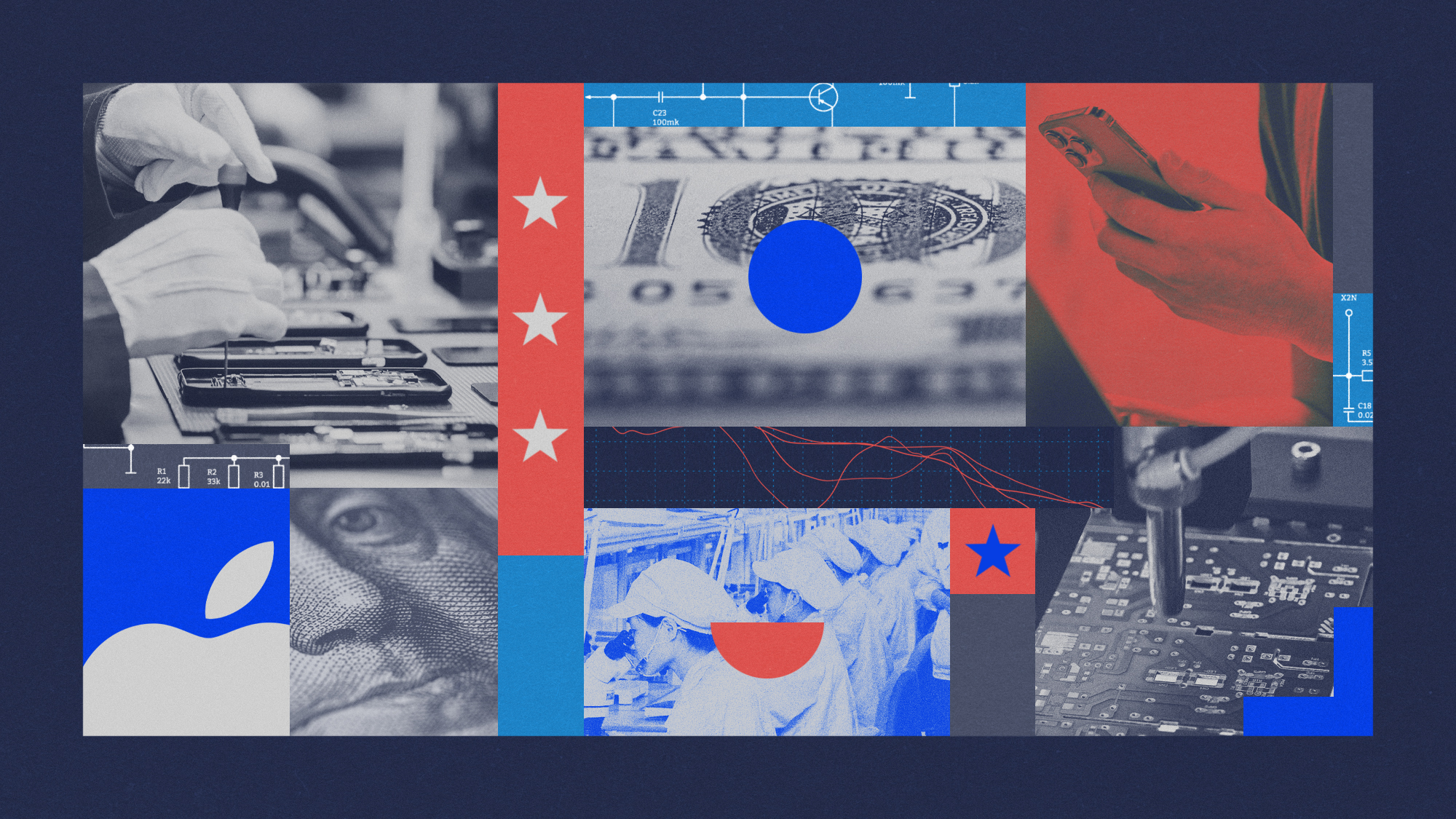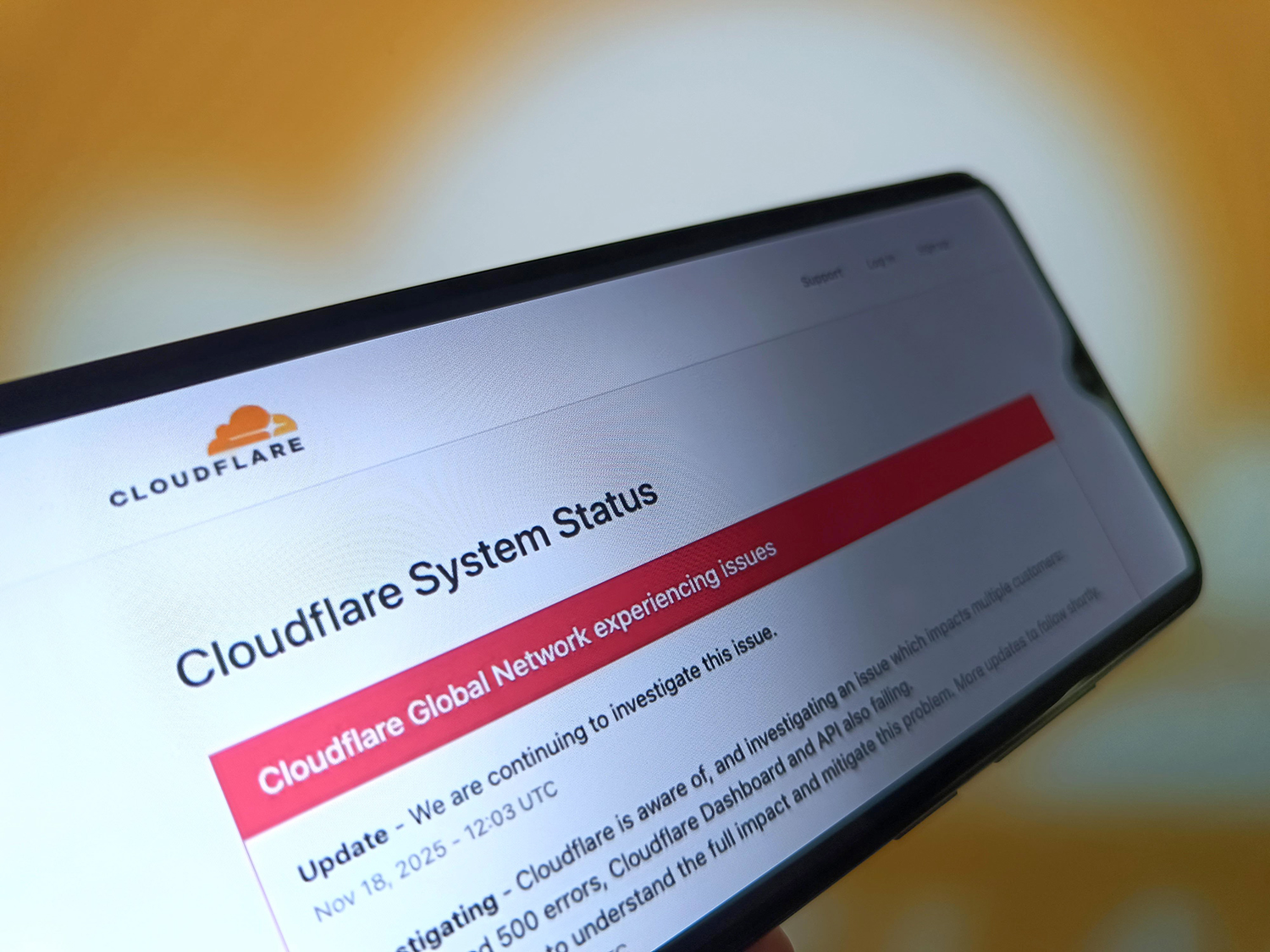Why won't Apple make iPhones in America?
Trump offers a reprieve on tariffs, for now


A free daily email with the biggest news stories of the day – and the best features from TheWeek.com
You are now subscribed
Your newsletter sign-up was successful
The future of the iPhone is up in the air. The White House announced Friday that electronics would be given an exception from President Donald Trump's massive new 145% tariffs on Chinese-made products. On Sunday, Trump seemed to renounce that waiver. That puts iPhone-maker Apple in limbo.
The tariffs are "poised to take a toll on tech companies like Apple," said CNBC. The tech giant is a U.S.-based company, but it "makes iPhones and most of its other products in China." Trump believes that "America cannot rely on China to manufacture critical technologies," said White House spokesman Kush Desai. Apple and other companies should be "hustling to onshore their manufacturing in the United States as soon as possible."
"What — besides magic — would it take to make iPhones here?" said The Wall Street Journal. The answer: a lot of money and time. iPhones are made from a "patchwork of sophisticated parts." Those parts originate in many countries and then are assembled in China. Some of the manufacturing could eventually be moved to America, experts say, but the devices would become prohibitively expensive: One estimate puts the cost of a homegrown iPhone at $3,500. The United States, said Johns Hopkins University business professor Tinglong Dai, has "lost the art of manufacturing at scale."
The Week
Escape your echo chamber. Get the facts behind the news, plus analysis from multiple perspectives.

Sign up for The Week's Free Newsletters
From our morning news briefing to a weekly Good News Newsletter, get the best of The Week delivered directly to your inbox.
From our morning news briefing to a weekly Good News Newsletter, get the best of The Week delivered directly to your inbox.
What did the commentators say?
An "all-American iPhone is impossible," Ed Hardy said at Cult of Mac. The United States does not have enough "production capacity, or sufficient numbers of workers" willing to take low-paying factory jobs. Nor does it have enough "customers thrilled about paying much higher costs" for U.S.-made products. Even if those obstacles are overcome, the transition will take time. An all-American iPhone "can't possibly roll off the production line before 2027."
There would be "few bigger victories" for Trump than moving iPhone production to America, Mark Gurman said at Bloomberg. Bringing factory jobs back to the U.S. would "validate his tariff plan." Apple is decreasing its reliance on China but is doing so by building the "world's second-largest iPhone plant" in India. The challenge is enormous: Apple's biggest manufacturing complexes in China are "almost towns themselves," with housing, education and medical facilities serving thousands of workers. "What city in America is going to put everything down and build only iPhones?" said Matthew Moore, a former Apple engineer.
What next?
It is still not clear what the immediate future holds for Apple and other tech companies. Trump appeared to renounce the waiver on Sunday, saying on his Truth Social account there was "no tariff 'exception'" granted for electronic products. American companies "need to make products in the United States," he said.
Apple was moving to airlift 600 tons of iPhones from India to "beat" the new tariffs, said Reuters. The company made extraordinary efforts to streamline the India-to-U.S. pipeline, working with authorities to reduce the time to clear customs at the Chennai airport from 30 hours down to six. Apple now sells "more than 220 million iPhones" a year around the world: A fifth of those come from India.
A free daily email with the biggest news stories of the day – and the best features from TheWeek.com
Joel Mathis is a writer with 30 years of newspaper and online journalism experience. His work also regularly appears in National Geographic and The Kansas City Star. His awards include best online commentary at the Online News Association and (twice) at the City and Regional Magazine Association.
-
 Switzerland could vote to cap its population
Switzerland could vote to cap its populationUnder the Radar Swiss People’s Party proposes referendum on radical anti-immigration measure to limit residents to 10 million
-
 Political cartoons for February 15
Political cartoons for February 15Cartoons Sunday's political cartoons include political ventriloquism, Europe in the middle, and more
-
 The broken water companies failing England and Wales
The broken water companies failing England and WalesExplainer With rising bills, deteriorating river health and a lack of investment, regulators face an uphill battle to stabilise the industry
-
 Will AI kill the smartphone?
Will AI kill the smartphone?In The Spotlight OpenAI and Meta want to unseat the ‘Lennon and McCartney’ of the gadget era
-
 TikTok finalizes deal creating US version
TikTok finalizes deal creating US versionSpeed Read The deal comes after tense back-and-forth negotiations
-
 Data centers could soon be orbiting in space
Data centers could soon be orbiting in spaceUnder the radar The AI revolution is going cosmic
-
 AI griefbots create a computerized afterlife
AI griefbots create a computerized afterlifeUnder the Radar Some say the machines help people mourn; others are skeptical
-
 Separating the real from the fake: tips for spotting AI slop
Separating the real from the fake: tips for spotting AI slopThe Week Recommends Advanced AI may have made slop videos harder to spot, but experts say it’s still possible to detect them
-
 Blackouts: Why the internet keeps breaking
Blackouts: Why the internet keeps breakingfeature Cloudflare was the latest in a string of outages
-
 X update unveils foreign MAGA boosters
X update unveils foreign MAGA boostersSpeed Read The accounts were located in Russia and Nigeria, among other countries
-
 Is Apple’s Tim Cook about to retire?
Is Apple’s Tim Cook about to retire?Today's Big Question A departure could come early next year
